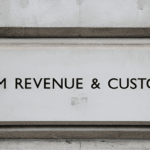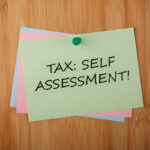
Why Every Freelancer Should Have a Tax Accountant
Freelancing offers unparalleled freedom, allowing individuals to set their own hours, choose their clients, and work from virtually anywhere. However, this independence comes with a significant responsibility—managing your own finances, particularly taxes. For many freelancers, the intricacies of tax regulations, deductions, and filings can be overwhelming. This is where a tax accountant becomes an invaluable asset. Here’s an in-depth look at why every freelancer should consider partnering with a tax accountant to secure their financial future.
1. Mastering the Complexity of Tax Regulations
Freelancers in the UK are subject to a myriad of tax obligations that differ significantly from those of traditional employees. From self-assessment tax returns to VAT registration and National Insurance contributions, the landscape is complex and ever-changing. Navigating these regulations without expert guidance can lead to errors, missed deadlines, and even penalties. A tax accountant brings a deep understanding of these rules, ensuring that you stay compliant and up-to-date with your tax obligations.
Moreover, tax laws frequently evolve, with new regulations and reliefs introduced by HMRC each year. Keeping track of these changes while managing a freelance career can be daunting. A tax accountant stays informed about the latest tax law updates, helping you adapt your financial strategy to remain compliant and take advantage of any new opportunities.

2. Maximizing Deductions and Minimizing Tax Liability
One of the greatest benefits of hiring a tax accountant is their ability to identify and maximize allowable deductions. Freelancers can claim a wide range of business expenses, including home office costs, travel, equipment, software subscriptions, and professional development. However, the rules surrounding these deductions can be complex, and improperly claimed expenses can trigger an audit or lead to penalties.
A tax accountant ensures that you claim every legitimate expense while maintaining proper documentation to support your claims. They can also help you structure your finances in a way that minimizes your overall tax liability, potentially saving you a significant amount of money each year.
For instance, if you’re working from home, a tax accountant can guide you on how to accurately calculate and claim a portion of your household expenses, such as rent, utilities, and internet, as business expenses. Similarly, they can advise on the best way to depreciate equipment or how to manage large one-off expenses to reduce your tax burden effectively.
3. Time Efficiency: Focus on What You Do Best
Freelancers thrive on creativity, innovation, and the ability to focus on their craft. However, managing taxes can be a significant distraction, consuming valuable time that could be spent on client work or business development. By hiring a tax accountant, you delegate the time-consuming tasks of tax preparation, filing, and compliance, allowing you to concentrate on what you do best.
In addition, tax accountants often offer bookkeeping services that help streamline your financial management throughout the year. This means you’ll have accurate, up-to-date records that make tax time less stressful and more efficient. Automated systems, combined with expert oversight, ensure that you’re always prepared, rather than scrambling to organize receipts and invoices at the last minute.
4. Reducing the Risk of Costly Mistakes
Freelancers, especially those who are new to the field, are more likely to make mistakes when handling their taxes. Common errors include underreporting income, failing to file on time, or incorrectly claiming deductions. These mistakes can lead to costly penalties, interest charges, and even audits by HMRC.
A tax accountant acts as a safeguard against these pitfalls. With their expertise, they ensure that your tax filings are accurate, complete, and submitted on time, significantly reducing the risk of errors. If an audit does occur, your accountant can represent you, providing the necessary documentation and explanations to HMRC, and helping to resolve any issues quickly and efficiently.
5. Strategic Financial Planning for Long-Term Success
Beyond tax preparation and filing, tax accountants play a crucial role in strategic financial planning. They analyze your income, expenses, and overall financial health, offering insights and advice that can help you make informed decisions about your business. Whether it’s planning for a major purchase, deciding how to structure your business, or saving for retirement, a tax accountant provides valuable guidance tailored to your unique situation.
For example, they can advise on the best ways to manage fluctuating income—a common challenge for freelancers—by setting up a reserve fund or adjusting your tax payments throughout the year. They can also help you explore investment opportunities, such as pension contributions, that not only secure your financial future but also offer tax benefits.
6. Navigating the Challenges of Growth
As your freelance business grows, so do your financial responsibilities. Expanding into new markets, hiring subcontractors, or diversifying your services can introduce additional tax complexities. A tax accountant helps you navigate these challenges, ensuring that your financial strategy evolves with your business.
- How many years can HMRC go back for self-assessment?

- How does HMRC know I have rental income?

- What do you do if you are new to completing self-assessment tax returns?

For instance, if you’re considering incorporating your freelance business, a tax accountant can evaluate the pros and cons, helping you understand the tax implications and administrative responsibilities. They can also assist with VAT registration if your turnover exceeds the VAT threshold, ensuring that you comply with all reporting requirements.
7. Support During HMRC Audits
Facing an HMRC audit is a daunting prospect for any freelancer, especially if you’re managing your taxes on your own. An audit can be time-consuming, stressful, and, if not handled correctly, financially damaging. Having a tax accountant on your side during an audit provides invaluable support.
Your accountant will help you prepare by ensuring that all your records are accurate and complete. They’ll represent you during the audit, communicating with HMRC on your behalf and providing any necessary documentation. Their expertise can make the audit process much smoother, reducing the risk of additional taxes, penalties, or legal issues.
8. Personalized Advice for Freelancers
Freelancers often have unique financial circumstances that differ from traditional employees or business owners. Whether it’s managing multiple income streams, dealing with irregular cash flow, or planning for self-employment taxes, a tax accountant can provide personalized advice tailored to your specific needs.
For example, they can help you decide how much to set aside for taxes each month, recommend the best way to manage invoicing and payments, or advise on how to handle large projects that span multiple tax years. This personalized approach ensures that you’re not only compliant with tax laws but also making the most of your financial opportunities.
9. Planning for Retirement and Beyond
Retirement planning is often overlooked by freelancers, who may not have access to traditional employer-sponsored pension schemes. A tax accountant can help you set up a retirement plan that suits your needs, whether it’s a personal pension, a self-invested personal pension (SIPP), or another savings vehicle. They can also advise on how to make the most of your contributions, taking advantage of tax reliefs and other benefits.

Additionally, if you’re planning to pass on your business or assets in the future, a tax accountant can help you navigate the complexities of inheritance tax and estate planning. By working with an expert, you can ensure that your financial legacy is protected and that your loved ones are taken care of.
10. Building a Long-Term Relationship with Your Accountant
Finally, having a tax accountant isn’t just about getting your taxes done—it’s about building a long-term relationship with a financial advisor who understands your business and personal goals. Over time, your accountant becomes familiar with your financial habits, challenges, and aspirations, allowing them to offer increasingly tailored advice that supports your growth and success.
This ongoing relationship means that you have a trusted partner to turn to whenever you face financial decisions or challenges. Whether you’re considering a new business venture, facing unexpected expenses, or planning for the future, your tax accountant is there to guide you every step of the way.
Conclusion
For freelancers, the benefits of hiring a tax accountant go far beyond tax preparation. A tax accountant provides essential support, helping you navigate complex tax laws, maximize deductions, and plan strategically for the future. By partnering with a tax accountant, you can save time, reduce stress, and focus on growing your freelance business with confidence.
At CANGAF Accountants, we specialize in providing tailored tax services for freelancers across the UK. Our team of experienced professionals is here to help you manage your finances, so you can focus on what you do best. Contact us today to learn how we can support your freelancing journey and help you achieve your financial goals.
Contact Information:
- Address: 235 Tonge Moor Road, Bolton BL2 2HR
- Email: info@cangafltd.com
- Phone: 01204 859315
- Website: www.cangafltd.com





